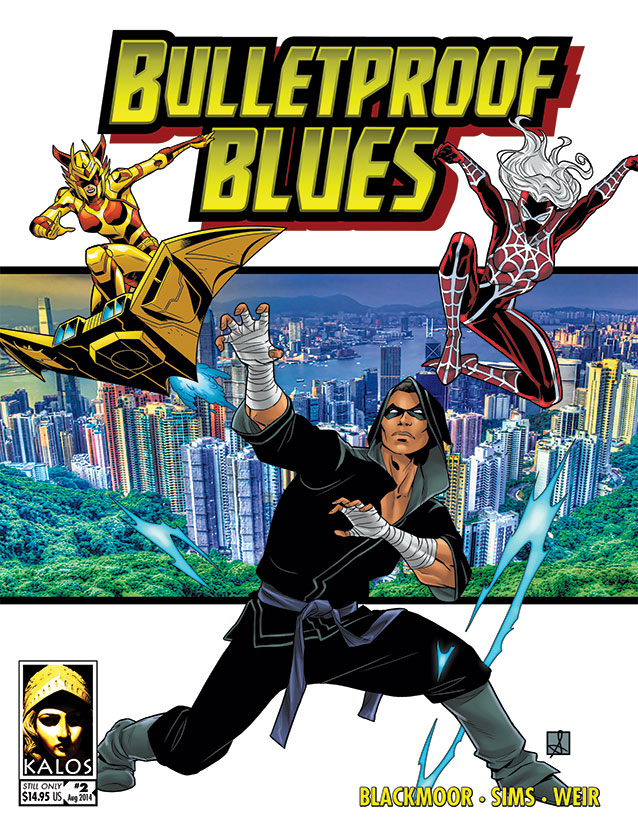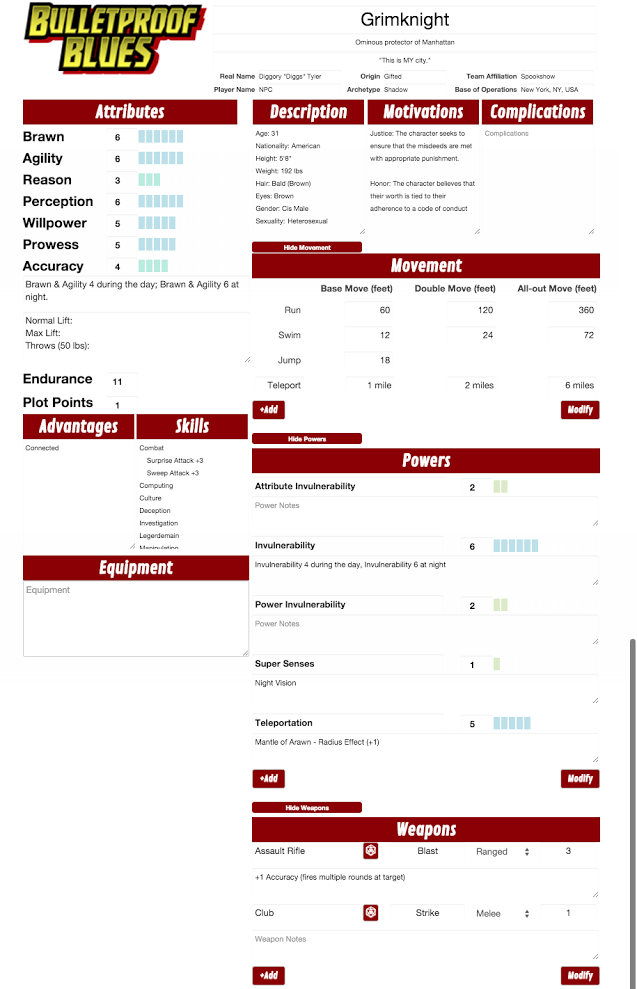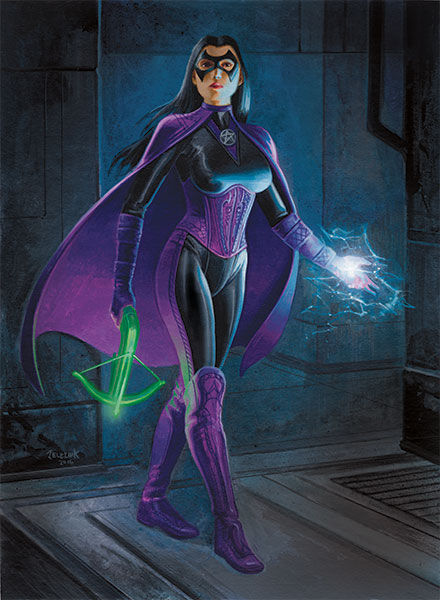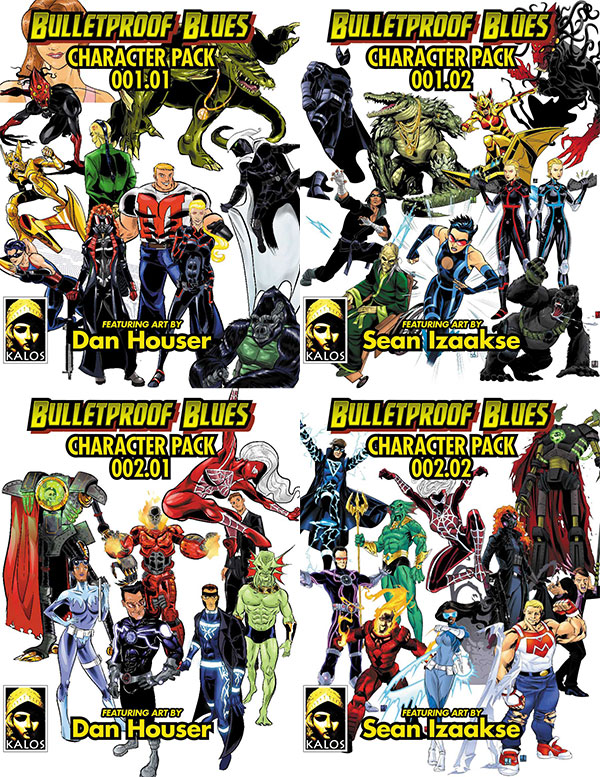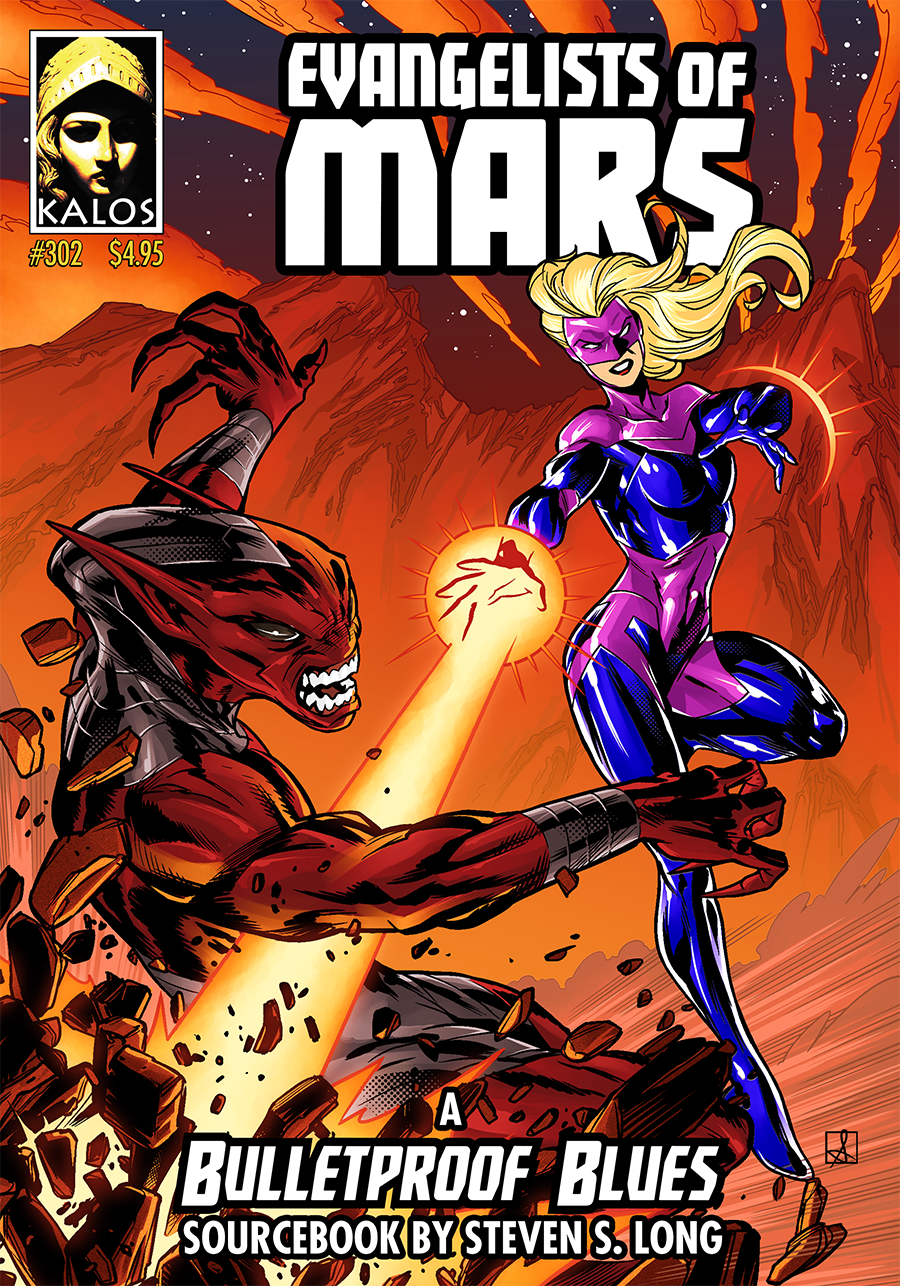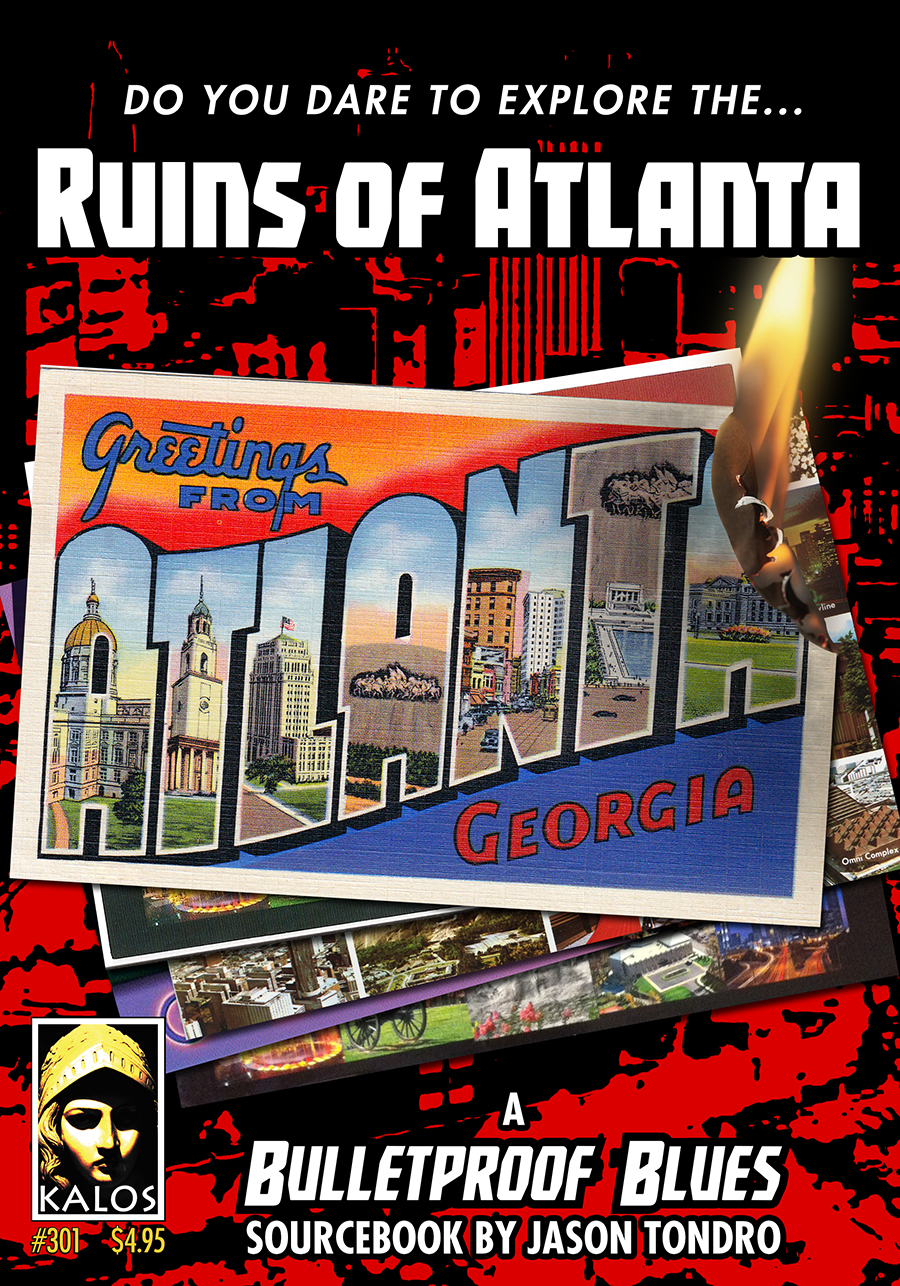We are contemplating possible simplifications in Bulletproof Blues. Here is one of the ideas we are playing with:
Rather than powers having individual ranks (e.g., Blast 7, Flight 4, Force Field 10), the character would simply have a list of powers (e.g., Blast, Flight, Force Field). The strength of these powers would be based on the character’s attributes, with different powers being based on different attributes:
- Intelligence – sensory powers, many skills
- Willpower – mental powers, social skills
- Strength – “brute force” powers, some physical skills
- Speed – travel powers, “speedster” powers, some physical skills, ability to avoid being hit at range
- Power – non-mental powers
- Defense – defensive powers
- Combat – ability to hit opponents, ability to avoid being hit hand-to-hand
Here’s part of our thinking behind this:
On the one hand, most characters who have more than one attack power, or more than one mental power, etc., tend to have them at the same (or nearly the same) rank. So having to buy ranks in Telepathy separately from ranks in Mind Hold (for example) seems a needless complication. Why not have a base value for the character’s power level, and then have a list of their powers?
On the other hand, the current method, in which ranks in Flight, Super-swimming, and Super-jumping (for example) are all bought separately, makes a character with all three powers way more expensive than a character with just Flight (for example). But the character who has all three movement powers isn’t actually all that more powerful. So why make that character so much more expensive?
What do you think?
P.S.
Here’s a possible drawback of this model: it makes the strength of a power implicit rather than explicit. In most cases, this shouldn’t be a problem — Blast is obviously based on Power, Mind Control is obviously based on Willpower, and so on.
But what about something less obvious, like Stretching? Would that be based on Strength, or Power? Perhaps the attribute should be placed after the power name: “Stretching (POW)”? Or perhaps we should just default to powers always being based on Power unless it is really, really obviously something else (i.e., when in doubt, use Power).
P.P.S.
A second drawback is that this model would make it difficult or impossible to have a team of characters who have similar sets of powers, but at varying power levels. For example, a team of psychics, all of whom have Telekinesis, Telepathy, and Mind Control, with each being most powerful with a different power (one character has strong Telekinesis but weak Telepathy and Mind Control, another character has strong Mind Control but weak Telepathy and Telekinesis, etc.).

